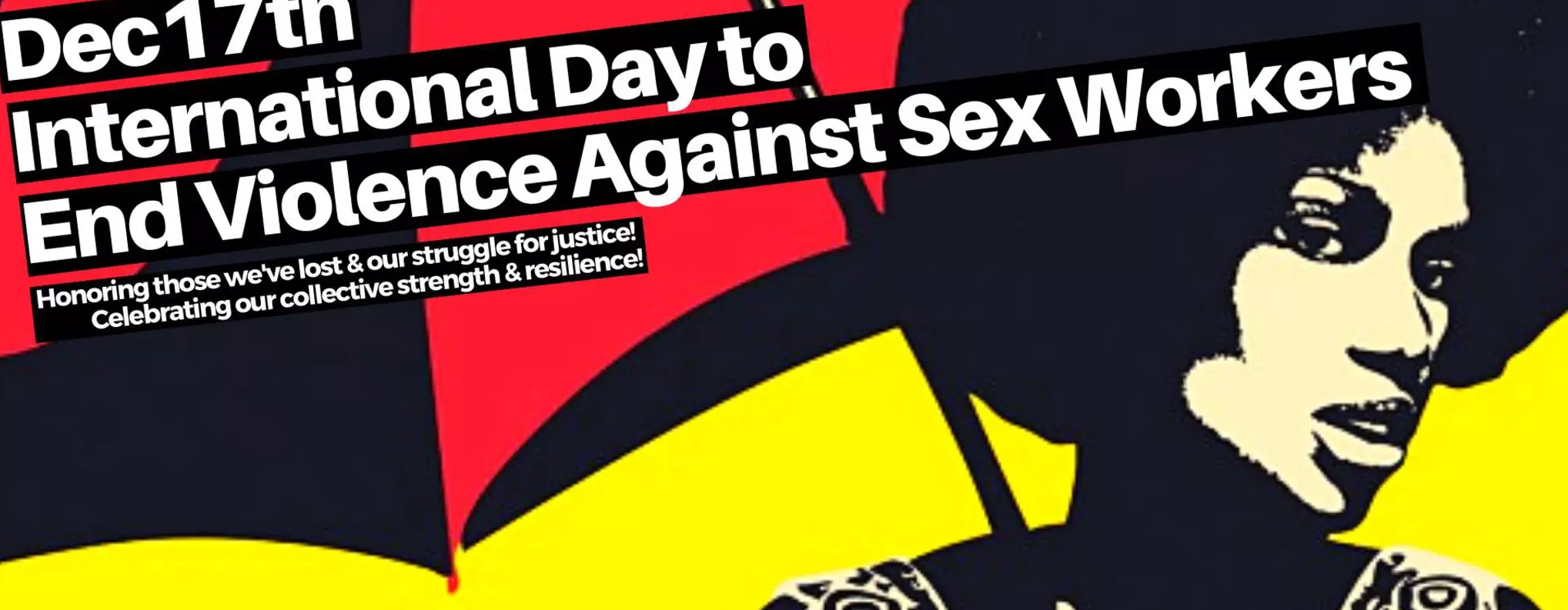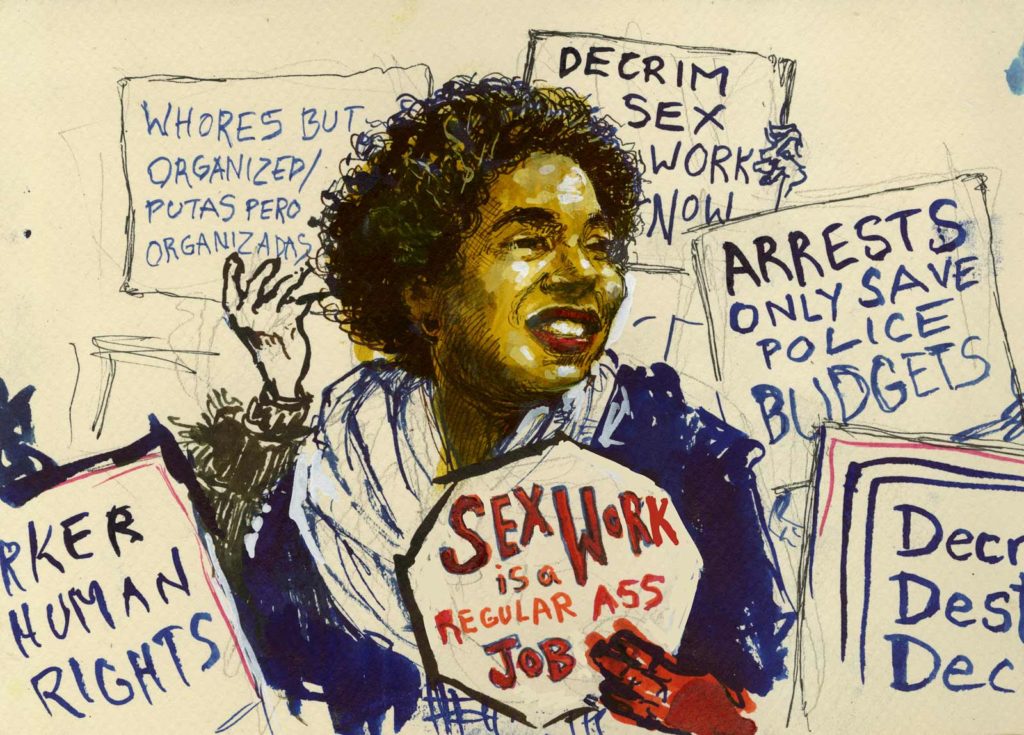Let's Talk About Sex, Baby
Researched by Yaeesh Collins and Isabella Liss
Written by Isabella Liss
Photographs by Yaeesh Collins
“Explicit is not always exploitative,” socialist Tricia Rose famously said of Salt-N-Pepa’s hit single which promoted sex education and dialogue. We as a society have the ability to ensure this approach is the norm. By changing attitudes surrounding sex work, issues such as decriminalisation garner public support. We hope to spread awareness through this project, and change perceptions of sex work. In turn, this urges authorities to provide better aids to those at risk of exploitation in the industry.

How sex work is represented in public today: Myths & Mayhem
Attitudes towards sexuality today are largely informed by Christianity and patriarchy, resulting in the oppression of those within the sex work industry. In most countries, the selling of sex is illegal. Exceptions (where sex workers have varying degrees of freedom to operate) include Germany, Switzerland, the Netherlands, Indonesia and New Zealand. Punishment ranges from monetary fines (common here in SA), to imprisonment and even execution (the Philippines and Iran). Disproportionately, issues affecting sex workers are felt most potently by those of lower socio-economic standing and people of colour. Examples in South Africa include the AIDS epidemic, gender-based violence, and poverty. The Sex Work Education and Advocacy Taskforce (SWEAT) reports that poverty is highly racialised and feminised. In 2016, when the unemployment rate was 27.7%, black women accounted for over 49% percent of unemployed people. For many poor black women with limited formal education, selling sex is a viable means of making a living, and supporting their children or other dependents. Further, SWEAT also reports that HIV prevalence in these female sex workers is still far higher than prevalence within the South African female population (between 40%-88%, compared to just 14.4%.)
Due to both religious condemnation and criminalisation, people’s assumptions about sex work are usually negative. One conjures up images of desperate women forced to work in seedy brothels, or on the street. This isn’t entirely inaccurate in a developing country where prostitutes are very much at risk of trafficking, ill health, gender-based violence, and many other factors that come with systematic poverty and lack of education. But this is not true of all kinds of sex work, and how the industry should ideally operate. Many of the above risks are a direct result of wider societal issues, not specifically intimate labour. Below, we debunk some common beliefs expressed by the public in our vox pop. Although most people thought sex work should be decriminalised in South Africa, many expressed incorrect assumptions and biases about the industry demographic or sex workers themselves. It’s also worth noting that while most people expressing their opinions agree with the concept of decriminalisation, the occupation being a taboo means that few personally engage with sex workers. Speakers are removed from the issue, and not necessarily invested in sex workers’ well-being.
“Sex workers are prostitutes”
Many speakers equated sex work with prostitution, but sex work extends beyond this. The industry includes pornography (images and film), sugar babies, strippers, escorts, dancers, and most recently, “cam girls” in the age of the internet. People involved in the industry don’t necessarily get physically intimate with clients, and each area of sex work comes with varying degrees of autonomy and anonymity for both participants and recipients. “Cam girls” and other sex workers providing services on the internet may not even engage in what society considers “generic” sex work. Many make an income from selling images of their feet or random body parts to those with particular “fetishes”. Another area of sex work that doesn’t directly involve human subjects or revealing oneself is that of pornographic cartoons, animation, and online games.
“Sex work is for desperate, impoverished women and the gay community”
This stereotype is perhaps rooted in patriarchy, the idea that women must perform to meet the needs of a man, and gay men being associated with prostitution or overwhelming sexual desire in perceived inferiority. In reality, the world is becoming increasingly more conscious of issues like gender-binarisms and fluidity. Sex work can be practised by heterosexual men and women, homosexual peoples, transgenders, the non-binary, any and every gender identity or sexuality in-between. Gender stereotypes are largely a result of our Western view on prostitution. In Thailand, for example, you would find that binary gender stereotypes are less common because Buddhism officially recognises three genders. The stereotype is then transvestites as prostitutes. Those that we interviewed also suggested that sex work is less of a taboo topic among communities that have been historically shunned by heteronormative society, as people within these communities tend to be more accepting. This does not imply that sex work is more common in queer circles, but oft times normalized or embraced.
Public perceptions of sex work tend to centre around the individual as a product of their work, for example, a “loose” woman who turns to prostitution because she is poor and uneducated. In any other career field, the individual is treated as separate from their work, with personal interests, desires, and opinions. Most of our interviewees participating in sex work are highly educated and/or well paid, and engage because they enjoy exercising their sexuality. Everyone is human with their own personal reasons for entering the industry. While free choice is a luxury in this line of work, it does not mean that it’s uncommon. Assuming that all sex workers are afflicted in their careers is incorrect.
"It's a shady job"
Sex work is not always a “seedy” operation, nor is it necessarily dangerous. While prostitution is associated with the “mafia”, underground activities, or trafficking rings, these are issues directly linked to poverty, corrupt government, and gender-based violence. Today, much sex work is done over the internet through which workers retain autonomy and even anonymity if they wish. Anyone can film from the comfort of their home. The US porn industry (the world’s largest in terms of films produced) is heavily regulated, ensuring performers wear condoms and are tested for STIs frequently. There is also a hint of classism in this approach. One tends to have double standards when viewing a celebrity on MTV wiggling their bum, versus a porn star or sex worker. It’s acceptable when you have affluence, but no one is particularly concerned about a sex worker’s safety or reputation because their career is considered a low-class venture.
Sex workers have mental health issues and should be “psychologically evaluated”
Kate, our interviewee, felt it to be rather offensive when people assume those who choose to enter into sex work are “crazy”. As stated above, individuals have their own various reasons for deciding upon any career. Sadly, mental health issues often arise from the way society ostracises sex workers, who find themselves isolated without a support base.
Monitoring in the name of Public Health
Many speakers held the opinion that sex workers should be routinely tested for STIs in order to be deemed “clean and healthy”. Sex workers interviewed find this invasive and unfair. Surely “public health” concerns the health of everyone having sex? The responsibility does not solely fall upon sex workers. “Public health" should also be expanded to include access to therapists and doctors.
We’ll be unpacking further assumptions, opinions, and misconceptions over the course of this SRP.
How do we change the narrative?
1. The Fight for Decriminalisation
Decriminalising sex work ensures that society’s negative perceptions and fears are avoided. Criminalisation means sex workers are even more vulnerable, as reporting a crime committed against them or asking for assistance from authorities is automatic admittance of guilt in terms of breaking the law. Sex workers also fear being taken advantage of by policemen in South Africa, who have the power to silence/ignore victims. Decriminalisation makes it easy for a sex worker to declare that they are vulnerable, and receive assistance. This also supports access to educational resources and contraceptives.
2. Understand the current context: Why are issues relating to sex work relevant in South Africa at the moment?
Our constitution is renowned for being “progressive”, but doesn’t allow for sex work. Sex workers do not have the freedoms many other labourers do. They are in need of protection, as are their (often many) dependents. Criminalisation of sex work has resulted in a loss of livelihood under lockdown. Before COVID, SWEAT found that more than 50% of reported sex worker deaths were as a result of murder. These are only reported figures; the pandemic exacerbating an already severe situation. Street workers are most vulnerable, facing loss of income and spaces to attract clients. Most do not have the resources or education to work online, so cannot continue making an income for themselves and their families without physical contact. Government has provided no relief for prostitutes, because they are viewed as criminals rather than workers.

The future of the sex work industry is uncertain. Post-COVID, sex workers will likely remain online as physical contact will be policed in most countries for a while longer. What does this future look like for sex workers, who have chiefly relied on physical intimacy in their work? How are South Africans who don’t have the resources going to negotiate this?
Collectively as a society, we should be spreading awareness, educating ourselves, and examining unconscious biases against sex work. Organisations like SWEAT need communities rallying behind them in demanding decriminalisation of sex work from government. A sex-positive mindset starts with the individual, so let’s talk about sex baby. The stories captured within this SRP aim to do so from an array of angles and experiences.

